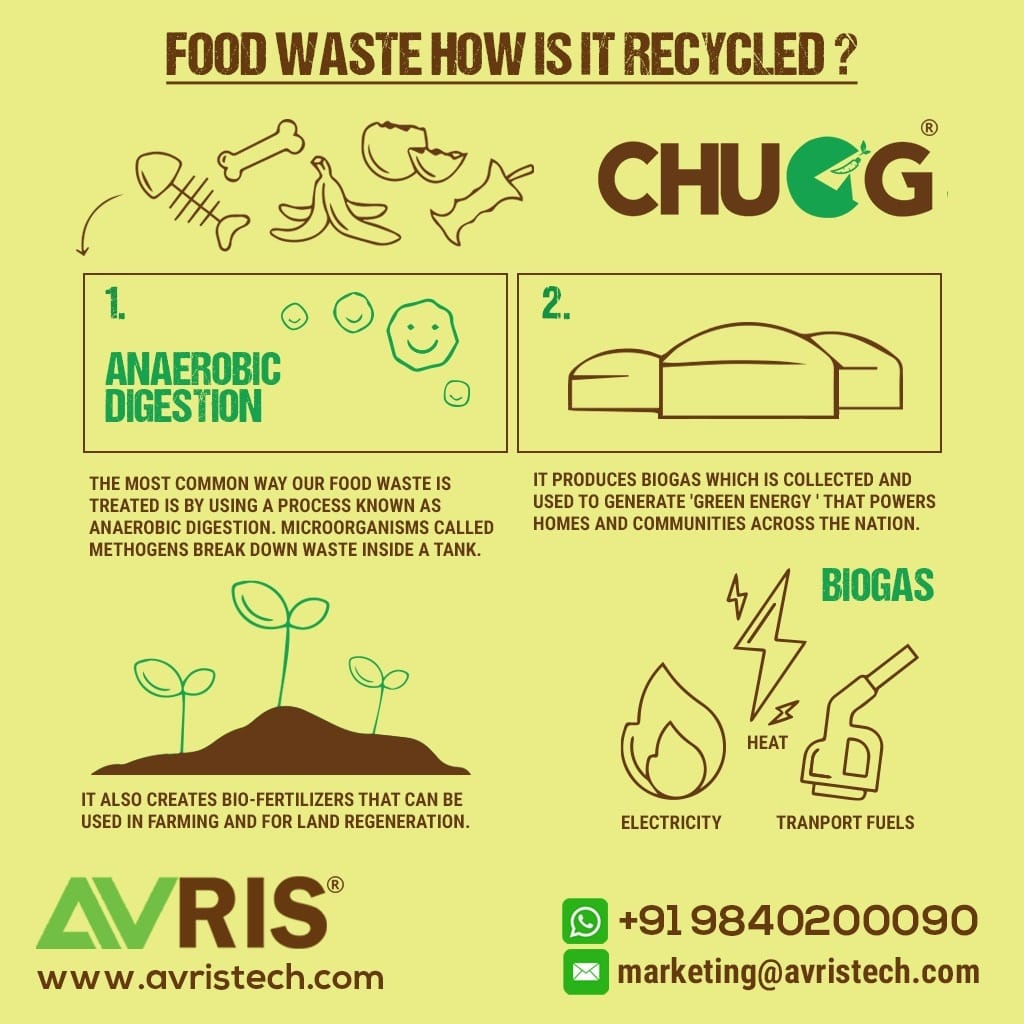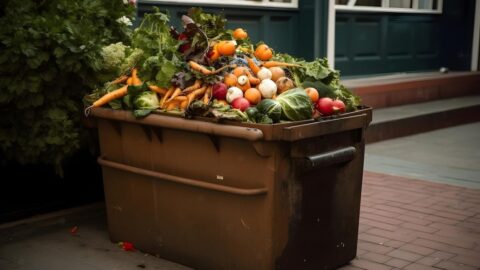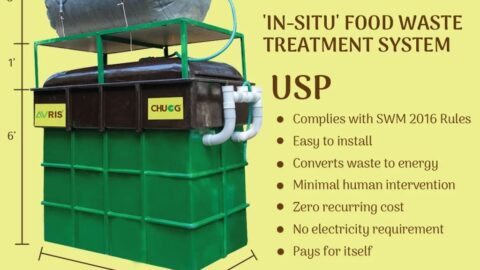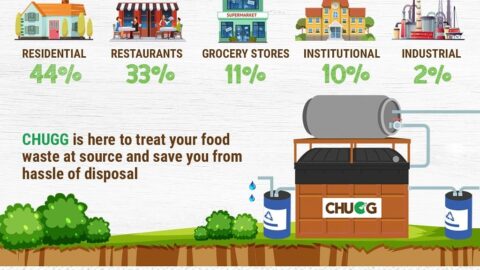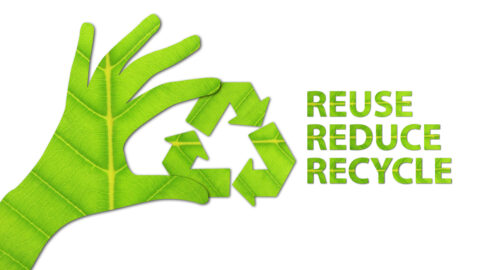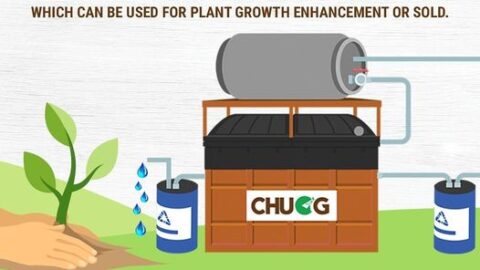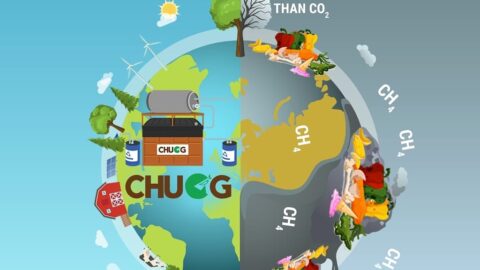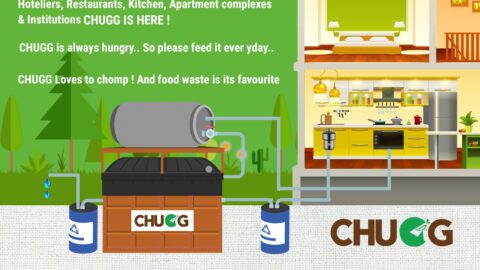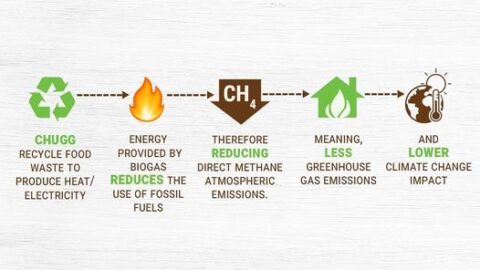Are you tired of dealing with smelly garbage bins and the hassle of wet waste management at home? Well, we’ve got you covered! In this comprehensive guide, we will take you on a journey to master the art of managing organic waste effortlessly. Say goodbye to those foul odors and messy trash and say hello to the innovative CHUGG food waste treatment system that will make your life a whole lot easier!
Introduction to Wet Waste
Let’s start by understanding what wet waste is all about. Wet waste, also known as organic waste, includes things like food scraps, vegetable peelings, tea leaves, and garden waste. It’s the stuff that decomposes quickly and can cause quite a stink if not managed properly. But fear not, because we’re here to show you how to handle it like a pro!
Understanding Organic Waste
Organic waste is derived from living organisms, such as plants and animals. When this waste decomposes, it releases a gas called methane, which is not so great for our environment. That’s why it’s important to manage organic waste responsibly to minimize its impact on our planet.
The Environmental Impact of Wet Waste
Now, let’s talk about why managing wet waste properly is so important. When organic waste ends up in landfills, it decomposes and produces methane gas. This gas is a major contributor to climate change and is even more potent than carbon dioxide in trapping heat in the atmosphere. So, by taking care of our wet waste, we can help reduce greenhouse gas emissions and protect the environment.
Benefits of Proper Wet Waste Management
Proper wet waste management comes with a bunch of benefits. First and foremost, it helps in reducing greenhouse gas emissions, which is crucial for combating climate change. Secondly, when managed correctly, wet waste can be turned into nutrient-rich compost that works wonders for your garden. And lastly, by managing wet waste effectively, we can reduce the burden on landfills, prolong their lifespan, and reduce the need for new ones.
Traditional Methods of Wet Waste Disposal
In the old days, people used to resort to methods like open dumping and uncontrolled composting to get rid of wet waste. But let’s be honest, those methods were far from perfect. Open dumping would release toxic substances into the environment, while uncontrolled composting could result in awful smells and attract pests. Definitely not the ideal way to handle wet waste!
Introducing CHUGG Food Waste Treatment System
Now, get ready to meet your new best friend in wet waste management—the CHUGG food waste treatment system! This innovative and patented device is here to revolutionize the way you deal with organic waste at home. Say goodbye to the mess and hello to a cleaner, greener lifestyle!
How CHUGG Works?
CHUGG is an advanced food waste treatment system that utilizes cutting-edge technology to process organic waste efficiently. It operates on the principle of aerobic digestion, which means that it breaks down the waste in the presence of oxygen.
When you dispose of your wet waste into the CHUGG system, the waste undergoes a series of carefully controlled processes. First, the waste is shredded into smaller particles to enhance the digestion process. Then, it is mixed with air and water to create the perfect environment for the beneficial microorganisms to thrive.
These microorganisms, including bacteria and fungi, work their magic by consuming the organic matter and breaking it down into simpler compounds. As a result, the waste is converted into water, carbon dioxide, and a small amount of residue.
CHUGG’s intelligent control system monitors and adjusts factors such as temperature, moisture, and oxygen levels to ensure optimal conditions for waste digestion. It also has built-in odor control mechanisms to eliminate any unpleasant smells that may arise during the process.
The residue produced by CHUGG is a nutrient-rich material that can be safely used as compost or soil amendment. It is environmentally friendly and can significantly improve the quality of your soil, promoting healthy plant growth.
The Advantages of CHUGG
The CHUGG food waste treatment system offers numerous advantages when it comes to managing organic waste at home. Let’s delve into the benefits of this innovative system:
Efficient Waste Reduction: CHUGG helps significantly reduce the volume of wet waste generated in your household. By processing the organic waste through its advanced technology, it breaks it down into smaller particles, resulting in a substantial reduction in waste volume. This means fewer trips to the garbage bin and less overall waste to manage.
Elimination of Foul Odors: One of the most unpleasant aspects of wet waste is the unpleasant odor it produces. CHUGG addresses this issue by incorporating odor control mechanisms in its design. As the waste undergoes controlled decomposition, the system ensures that any foul odors are minimized, keeping your home smelling fresh and clean.
Prevention of Pest Infestation: Traditional methods of wet waste disposal, such as open dumping or uncontrolled composting, can attract pests like rats, flies, and cockroaches. These pests not only pose health risks but also create a nuisance. With CHUGG, you can say goodbye to pest infestations. The controlled processing of organic waste prevents the attraction of pests, making your home a more hygienic and pest-free environment.
Environmentally Friendly: Managing organic waste properly is crucial for environmental sustainability. CHUGG aligns perfectly with this objective. By utilizing aerobic digestion and ensuring optimal conditions for waste breakdown, it reduces the production of methane gas during the decomposition process. Methane is a potent greenhouse gas that contributes to climate change. By using Chugg, you actively participate in reducing greenhouse gas emissions and minimizing your carbon footprint.
Production of Nutrient-Rich Compost: CHUGG doesn’t just process waste; it transforms it into a valuable resource. The residue produced by the system is a nutrient-rich material that can be used as compost. This compost is an excellent soil amendment that enriches the soil with essential nutrients, improving its fertility and promoting healthy plant growth. By utilizing the compost generated by CHUGG, you can create a sustainable and flourishing garden.
User-Friendly and Easy to Operate: CHUGG is designed with user convenience in mind. Its user-friendly interface and simple operation make it accessible to everyone. You can easily install and set up the system in your home without any hassle. The step-by-step guide provided by CHUGG ensures a smooth experience in using the system effectively.
Versatility and Adaptability: The CHUGG food waste treatment system is adaptable to various types of organic waste. It can handle a wide range of materials, including food scraps, vegetable peelings, coffee grounds, and garden waste. This versatility allows you to dispose of different types of wet waste without limitations, providing a comprehensive solution for your organic waste management needs.a boost.
Step-by-Step Guide to Using CHUGG
Here’s a step-by-step guide on how to use the CHUGG food waste treatment system:
Installation: Begin by installing the CHUGG system in a convenient location in your home, preferably near your kitchen or where you generate the most organic waste. Follow the manufacturer’s instructions provided in the user manual or installation guide to ensure proper setup.
Collection: Collect your wet waste separately from other types of waste. Use designated containers or compostable bags to store the organic waste. This helps in easy handling and prevents contamination.
Preparation: Before disposing of the wet waste into the CHUGG system, make sure to shred or chop larger pieces of waste into smaller particles. This step enhances the digestion process and ensures efficient decomposition.
Loading: Open the CHUGG device and carefully add the prepared wet waste into the system. Make sure not to overload the unit to ensure optimal performance. Close the device securely to maintain a controlled environment.
Operation: Once the wet waste is loaded and the device is securely closed, the CHUGG system takes over. It automatically initiates the digestion process, maintaining the necessary conditions of temperature, moisture, and oxygen levels for efficient waste breakdown.
Monitoring: Periodically check the CHUGG system to ensure it is functioning correctly. Monitor the device’s indicators or display panel, if available, for any alerts or notifications. This allows you to address any potential issues promptly.
Completion: The CHUGG system will complete the treatment cycle based on the digestion time required. Once the cycle is finished, the waste will be converted into water, carbon dioxide, and a small residue.
Residue Removal: Open the CHUGG system and carefully remove the residue. This residue is the nutrient-rich compost that can be used in your garden or as a soil amendment.
Cleaning and Maintenance: Regularly clean and maintain the CHUGG system as per the manufacturer’s instructions. This helps ensure the longevity and optimal performance of the device.
Tips for Effective Wet Waste Management
To make your wet waste management even more effective, we’ve got a few tips up our sleeve:
- Keep wet waste separate from other types of waste to make handling easier.
- Store wet waste in airtight containers or compostable bags to prevent odors and leaks.
- Teach your family members about the importance of segregating wet waste properly.
- Avoid disposing of liquids, oils, or non-compostable items in the CHUGG system.
- Regularly clean and maintain your CHUGG device to ensure optimal performance.
Composting Techniques for Organic Waste
If you want to take your wet waste management to the next level, why not try composting? It’s a fantastic way to recycle organic waste and create nutrient-rich soil amendments. Just follow a few simple composting techniques, like maintaining the right carbon-to-nitrogen ratio, turning the compost regularly, and providing adequate moisture.
Utilizing Compost in Your Garden
Compost is like gold for your garden! It’s packed with nutrients and improves the quality of your soil. Spread it on your garden beds, mix it with potting soil for potted plants, or use it as a top dressing for existing plants. Your plants will thank you for it—they’ll grow healthier, have stronger roots, and require fewer synthetic fertilizers.
Reducing Wet Waste Generation
While managing wet waste is important, reducing its generation is equally crucial. Here are a few tips to help you minimize organic waste:
- Plan your meals carefully to avoid food waste
- Make the most of your fruits and vegetables by composting their peels
- Use reusable containers and bags to cut down on packaging waste.
- Freeze excess food before it goes bad to extend its usability
Wet Waste Recycling Options
Besides composting, there are other options for recycling wet waste. Some communities offer curbside collection of organic waste for centralized composting facilities. You can also check with local farmers or community composting initiatives if they accept organic waste for their composting systems. It’s all about finding the right option for your area and contributing to a sustainable waste management ecosystem.
Conclusion
Congratulations! You’ve now become an expert in managing wet waste at home. With the help of the CHUGG food waste treatment system and some composting know-how, you can transform your organic waste into a valuable resource. Say goodbye to smelly trash bins and hello to a cleaner, greener future
Learn how to handle wet waste

